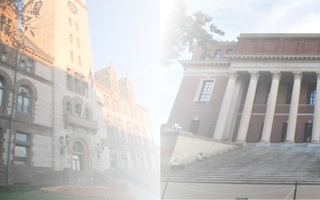“I think only in a place like Cambridge could you even be having this conversation. In the realm of realism, right?” said Leland Cheung, a current councillor and candidate. “Nowhere else could even entertain the idea that we ask even more of developers. Everyone else is just struggling to attract businesses and create jobs to put their residents back to work.”
The development community asked the City Council not to approve the Connolly Petition at a Planning Board meeting in August. Echoing Maher’s sentiment on having an inclusive process with the task force, other candidates made it clear that they would only be comfortable moving forward with all stakeholders at the table.
“If you try to impose something which is not acceptable to the developers, then there cannot be developments,” said candidate Mushtaque Mirza. “We need something more practical, and I personally believe the community and the developers have to meet at one point and agree to it.”
Although a tension exists between the pro-development interests in Cambridge and the net zero movement, there is room for debate about how beneficial the petition would be for the environment as a whole.
“At the end of the day, what is best for the environment from a Cambridge perspective is density. If we just take the buildings that would have been built in Kendall Square and move them to Quincy or Waltham or Boston—then we haven’t done [pro-environmentalists] any favors,” said current City Councillor and candidate Craig A. Kelley. “So we need to make sure that whatever we implement as zoning keeps the buildings here and makes them more environmentally sound.”
Kelley added that if it came down to keeping the buildings or keeping the environment, he would vote for keeping the buildings.
WHO WILL LEAD
As evidenced in the interviews with the candidates, the development community plays a central role for city finances in part because Harvard and MIT are exempt from paying property tax for their non-commercial land holdings. This distinction naturally puts pressure on developing commercial land in Cambridge. Yet, Councillor Maher said he did not feel there was a need for such a strict adversarial relationship between business and environment.
“We have done a lot of very, very clever and very environmentally friendly things in this city by being good partners, not by being overly authoritarian,” Maher said. “We have heard from the Chamber of Commerce who said they don’t want this, but if you do this the right way, it won’t have a negative impact on the construction.”
Candidate Jefferson R. Smith expressed that the onus of the initiative should not lie with the City Council and development community but with Cambridge’s two biggest universities, Harvard and MIT.
“If we’re going to be developing together and having a future together, [I think] that Harvard, MIT, and Lesley [should] contribute to a master plan for urban planning,” Smith said. “We should be making sure that we’re all studying our future plans in a collaborative way, working on environmental issues and sustainable development together.”
The Connolly Petition as it stands allows developers to buy renewable energy credits to mitigate their environmental impact, but it is these credits that seem to be most controversial for candidates, ranging from their practicality to their legality.
Councillor Kelley was unsure about the legality of the process and Councillor Cheung questioned its effectiveness. Cheung recalled hearing stories of other places where people will tear up a solar farm, build up a windmill, then tear down the windmill and rebuild a solar farm just to earn these credits.
“[The credits] are just kind of shifting back and forth, not audited. There is no standard. It winds up just deceiving. People are just scamming money from well-intentioned people,” Cheung said.
Read more in News
Coop Announces 8.8 Percent RebateRecommended Articles
-
BRIEF: City of Cambridge Divided Into Two Voting DistrictsLast week, Massachusetts Governor Deval L. Patrick ’78, a Democrat signed a state-wide redistricting bill that will divide the city of Cambridge into two voting districts.
-
 Piece of Mind? Piece of Cake
Piece of Mind? Piece of Cake -
As Healy Departs, Cambridge City Council Looks to Find ReplacementWith longtime City Manager Robert W. Healy’s contract due to expire in June 2013, the Cambridge City Council has begun the search for his replacement.
-
City Council Taps Rossi To Be City ManagerIn a move that upset some Cantabrigians and drew praise from others, the Cambridge City Council tapped Deputy City Manager Richard C. Rossi to replace longtime City Manager Robert W. Healy.
-
City Council Passes Resolution Backing HUCTWThe Cambridge City Council passed a resolution last Monday night declaring its support for the Harvard Union of Technical and Clerical Workers as the union continues its ongoing negotiations with the University.
-
 Town and Gown
Town and Gown













